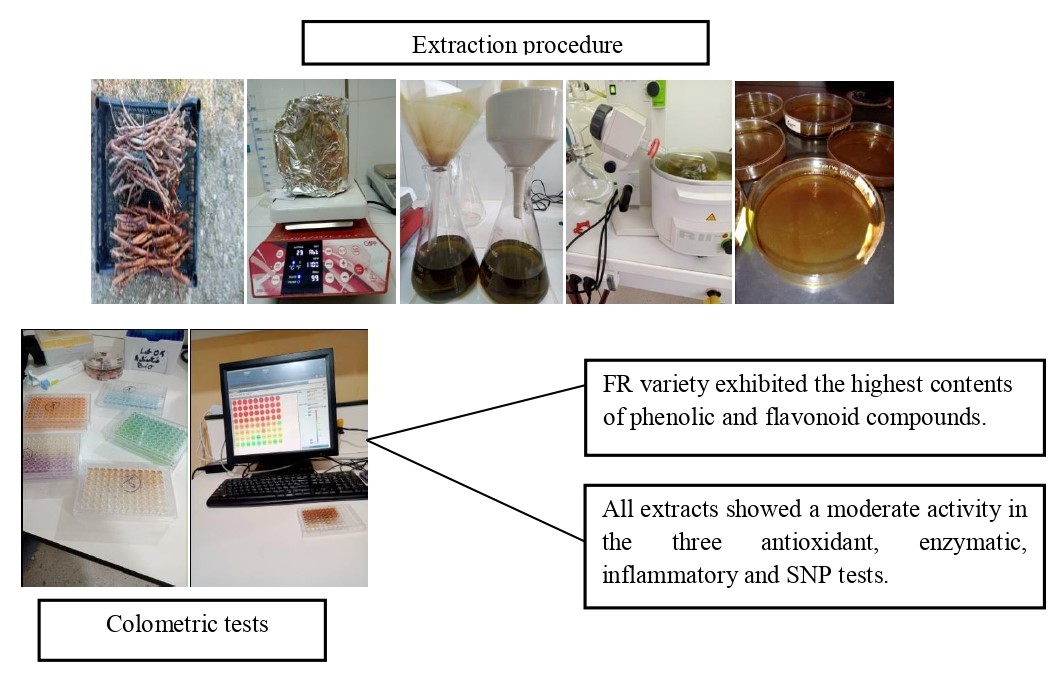
One of the most widely cultivated crops in the world is grapevine knowing that about 77.8 million tons of grapes are produced worldwide each year. Both of vine growing, pruning, and winemaking generate a vast quantity of wastes and byproducts such as skin, seed, and canes. Grape canes include a wide range of phenolic profiles which have several biological effects. In the present study four vine Algerian grape cane cultivars were selected for the evaluation of their phenolic contents and biological activities. The objective of this study was to evaluate the total phenolic and flavonoid contents, in vitro antioxidant activity (using DPPH, ABTS, and reducing power methods), enzyme inhibitory activity (towards alpha amylase, and urease) anti-inflammatory activity, and sun protection factor of each extract. All grape extracts were compared for their TPC and TFC values which ranged from 123 to 288 mg of Gallic acid equivalent (GAE)/g extract to 24.5 to 55.6 mg of quercetin equivalent (QCE)/g extract respectively. The highest TPC and TFC were found in the grape cultivar FR (288.8 mg GAE/g extract, 55,625 mg QCE/g extract respectively). The results revealed also that all extracts showed high antioxidant with the same trend of phenolic composition and significant enzymatic activity in all tests. Additionally, all extracts showed a moderate anti-inflammatory activity by inhibiting the denaturation of BSA, and given a high sun protection factor. These findings imply that grape canes which considered as undervalued parts have a significant potential to be used as a natural treatment for many physiological diseases and for the pharmaceutical and cosmetic sector and medical research.
Total file downloads: 28